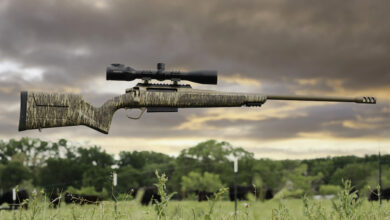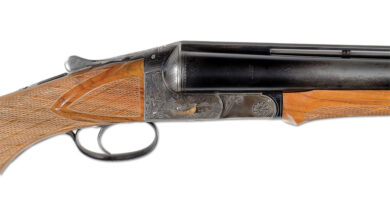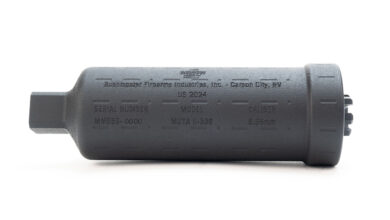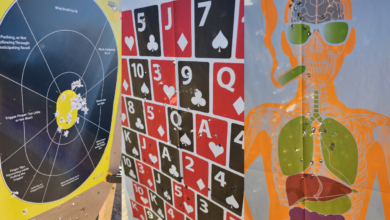Pistols Suck At Stopping Bad Guys: An Examination of Terminal Ballistics
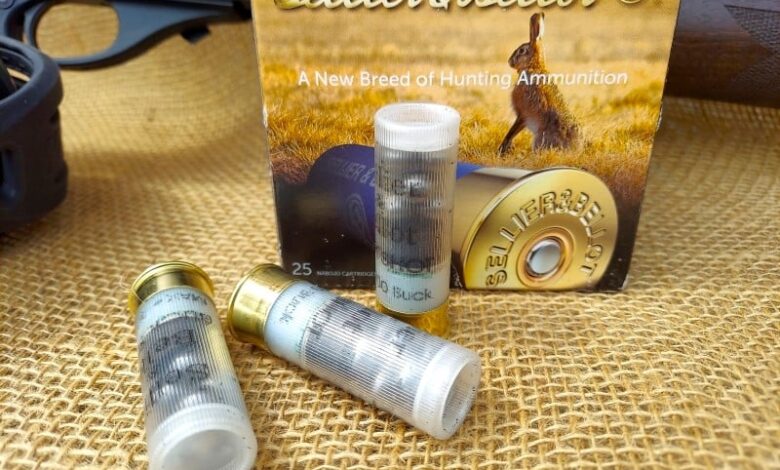
Pistols suck at stopping bad guys from doing bad things. There, I said it. And it’s the truth. How did I arrive at such a blasphemous statement? I’ll break it down for you.
Any firearm can fail to stop an attacker, so let’s get that out of the way from the gate. Don’t believe me? I have a friend I’ve known for a couple of decades. He used to be a cop. One evening, things were going less than perfectly, and he was forced to “engage” a felon.
His first shot was a Federal 147-grain Hydra Shock, and it hit the nefarious actor above the belt buckle, dead center. Unfortunately, the miscreant was wearing several layers, including a leather jacket. The round expanded and stopped in the man’s clothing, having absolutely zero effect on his behavior.
During the ensuing confrontation, the felon absorbed a large number of 9mm and .40 caliber rounds from several pistols. He finally expired when he soaked up four rounds of 12-gauge OO buckshot. Yes, you read that correctly – four rounds of buckshot. My friend noted that he believes the only reason the perp didn’t get additional shots off was due to the fact that one of the 12-gauge rounds removed his thumb, so he could no longer grip his pistol.
Does this paint a graphic enough picture for you? I’m sorry, but that’s a good thing because fighting with firearms is not pretty. There are plenty of videos on the web that feature bad guys being shot multiple times, and the rounds have very little effect on them. I won’t include any photos of such things here in the article.
Another factor in my research is that I had the opportunity during my Corrections career to speak with hundreds of inmates and some staff whom I worked with who had been shot. In talking with them about their experiences, I found that a lot of the information I gathered matches what I’m about to share here with you, dear reader.
Terminal ballistics is the study of projectiles and how they affect the target (in this case, the body). Let’s discuss how those ballistics work and why handguns kinda suck at stopping bad guys.
Why carry a pistol?
We carry pistols because they’re concealable and easy to carry. And frankly, a cop is too heavy to lug around with us all day long. Because of these impracticalities, we carry a (normally) concealed pistol with us purely out of convenience.
Stopping Bad Guys
We don’t shoot to kill; we shoot to stop. Specifically, we shoot to stop another person from committing serious bodily harm or death upon us or another person. The bad guy might die, or he might not, but I need him to stop his hostile actions.
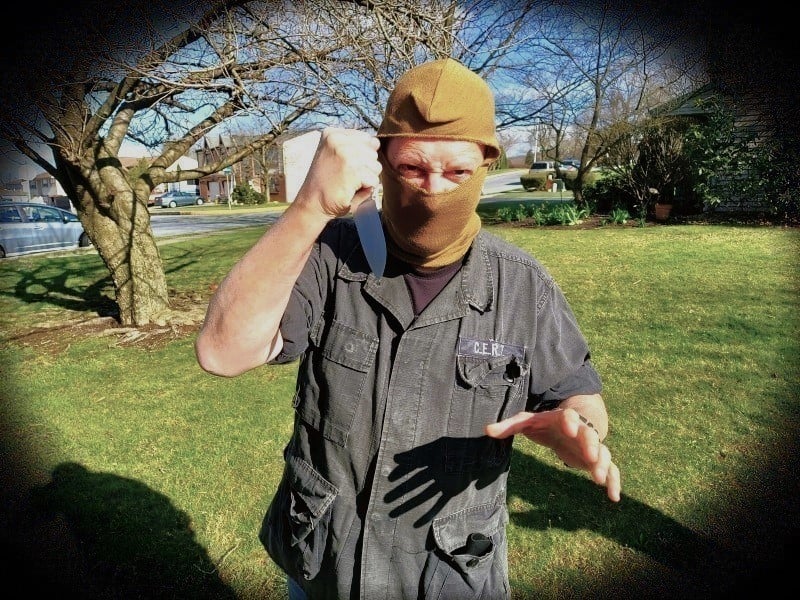
Three things will stop a human from attacking us:
- A hit to the Central Nervous System, which is the brain and/or spine. This is the only way that you can be guaranteed an immediate stop. Period, end of story. The bad news is that the CNS is a difficult target to hit, especially in a highly motivated and mobile attacker. People do tend to move around enthusiastically during combative activities.
- Blood loss. Lose enough blood, and the blood pressure drops far enough that the body will stop working. I’ve seen this occur on duty. An attacker had enough holes poked into his circulatory system that his blood pressure eventually fell far enough that he collapsed and died. However, it took a few minutes for this to happen, during which time he fought valiantly. This is not a quick way to stop an attacker!
- Psychological mindset. Many people are conditioned that they’re supposed to fall down when shot. Why? Because we see it in the movies and television all the time. And yes, the movies tremendously influence peoples’ actions (life imitates art). So sometimes they go down when shot, but this is NOT a reliable thing to bank on.
Cavities
There are two types of cavities: Permanent and Temporary. The Permanent Cavity is the hole made by the bullet and its crushing effect on the tissue that it contacts. On the contrary, the Temporary (or Stretch) Cavity is created by the energy from the bullet passing through. A shockwave emanates from the bullet’s energy, creating a cavity that lasts from five to ten milliseconds.
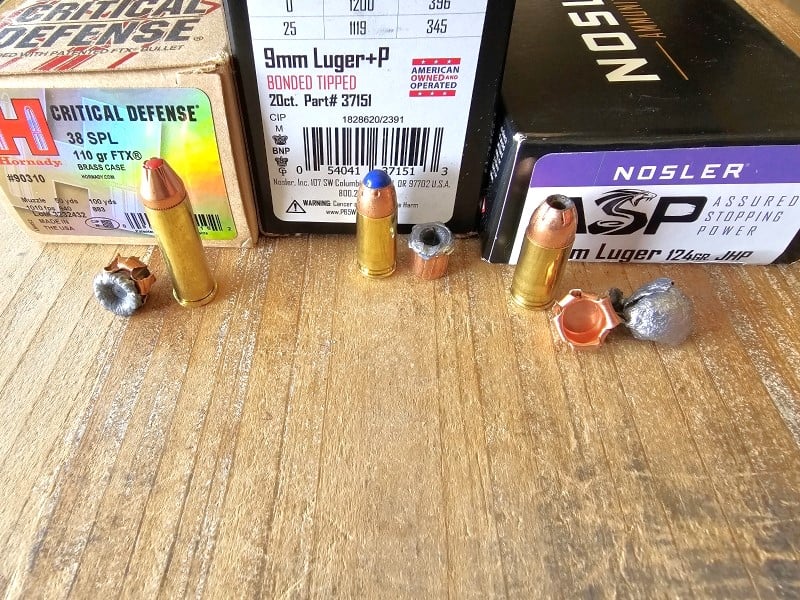
When compared to rifle projectiles, pistol rounds cause a comparatively small Stretch Cavity because of their much lower velocity. Why is this significant? Because certain organs are affected by the shock wave. The lungs, heart, kidneys, brain, and liver are less elastic than other organs, and the shockwave affects them more, especially when we’re talking about rifle rounds. A rifle round can take out organs without touching them because of the velocity and that shockwave. A handgun round is far less likely to do so because it lacks the velocity.
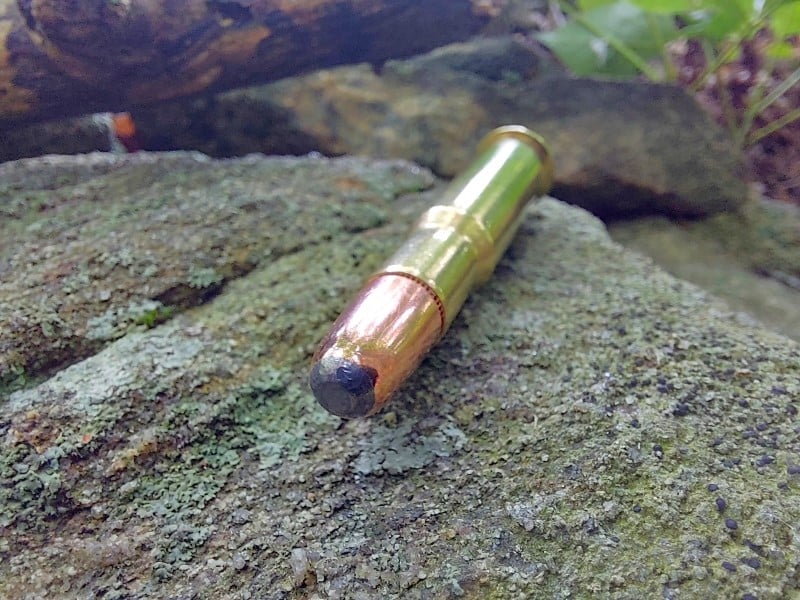
Rifle rounds are more prone to fragment and/or yaw and break into pieces due to their velocity, all of which add to the wounding characteristics. Most rifle bullets travel above 2,000 feet per second, which seems to be the threshold at which the temporary cavity can cause damage to nearby organs.
Handgun rounds, on the other hand (at least those intended for defensive use), tend to hold together more in one piece. This is desirable because we can’t count on their speed to do the dirty work, so we have to have penetration. The more a pistol bullet penetrates, the more chance it has to reach vital organs and affect blood loss. That is assuming it has not hit the Central Nervous System.
Despite some having a favorite caliber that they believe is more effective than the others, most pistol rounds are about equally effective, regardless of whether it’s 9mm, .38 Special, .40 S&W, or .45 ACP. Most pistol calibers will stop an attacker less than 50% of the time with one round. Because of this, we train for the event where we have to fire multiple rounds to stop attackers.
Generally speaking, the chances of stopping an attacker with one round when using a rifle are around 80% or so. Shotguns are even higher.
Am I advocating against carrying a pistol? Not at all. However, if we’re going to carry a pistol for defensive purposes, we should have a realistic picture of its capabilities.
More On Mindset
Mindset has so much to do with how a subject will react when shot or otherwise receiving major trauma. A person walking down the street who is not expecting trouble will probably be calm. When shot, his reaction is going to be far different than a guy who’s engaged in life-or-death combat, who is amped up to the max and completely adrenalized.
There’s a lot to be said for rage and pure hatred carrying people through combat while experiencing wounds that should have long ago rendered them dead. I was witness to such an event on duty where two men were fighting, and one man was fatally stabbed multiple times. He should have been dead within two minutes, but he lasted a few minutes beyond that, and I owe it to the fact that he was enraged and wanted to kill the man who had stabbed him. He continued to fight and, consequently, received even more stab wounds for his efforts. Eventually, his blood pressure dropped far enough that his body simply collapsed, and he died very shortly afterward.
We’ve all read accounts of soldiers in battle performing impossible tasks despite horrific wounds. Mindset and determination play a huge role. Mind over matter is a real, literal phenomenon. However, there is another element at play.
Adrenaline
Adrenaline is a magical substance that our bodies produce while under extreme stress. To be accurate, it’s not merely adrenaline but a cocktail of chemicals that our body produces to give us the extra fortitude to get through a crisis.
There’s a difference between being nervous about public speaking and being attacked by a potential murderer. One releases mild adrenal effects, and the other turns the flow on full-bore!
Some of the effects of adrenaline are:
- Tachypsychia. This is the mind’s distortion of time. Things may seem to go into super-slow motion. Sometimes, we may feel like we have left our body and are watching from the outside. Hundreds of thoughts can race through our minds in a matter of a couple of seconds, and it can be a dream-like state.
- Loss of Fine Motor Skills. Blood is drawn from our extremities as we enter battle, turning our hands and fingers into flippers as our body protects itself from blood loss in the event of an injury to our extremities.
- Memory Distortion/Loss. The effects of adrenaline can cause our recollection of events to be forgotten or distorted. This can affect our credibility when we make a statement and come back to haunt us later on. Be careful when you make a statement.
- Auditory Exclusion. Sometimes, our hearing shuts down, and sounds can seem to be coming from a distant place, or we may not hear anything at all. Even loud sounds, such as gunfire, might not be noticed.
- Tunnel Vision. We tend to focus on the threat in front of us and exclude everything else. The attacker can seem as if he is at the end of a dark tunnel as the brain ignores peripheral vision. Sometimes, people report not being able to see the sights of their weapons.
- Pain Exclusion. Many times, we do not feel pain from wounds until after the adrenal effects pass. Even serious wounds might not hurt immediately.
There have been incidents where I experienced each one of these effects, and they are fairly common among people going through critical incidents. The more often a person experiences this, the better he can learn to deal with it when the time comes.
Adrenaline can make an attacker not even realize that he’s been shot or stabbed, and it can carry him through the entire event. Again, it can affect the person to the extent that he functions after the point that he should have collapsed and died.
Other Chemicals
Aside from adrenaline, there are a myriad of other mind-altering drugs and recreational chemicals available to people these days. Some of these drugs can make people nearly impossible to stop quickly. Street drugs these days are both very available and incredibly cheap. Unfortunately, many of the people who would attack us are criminals who habitually use drugs and/or alcohol, which makes them more difficult to stop.
In Conclusion
We can now see why wounds from handguns are less threatening than from long guns: their lack of velocity is the main factor. Projectiles traveling under 2,000 feet per second cause fewer injuries from the Temporary Cavity standpoint. It’s important to note that I’m not saying handguns are worthless for defense, but rather that there’s good, and then there’s better. 5.56mm is better, and so is .308, among others.
The only fast way to stop an attacker with any reliability is to hit the Central Nervous System (brain or spine). Any other method will not be nearly as fast as that CNS hit.
We’ve also looked at other factors that can be extremely influential, such as mindset and the effects of adrenaline or other drugs. One thing is for certain when dealing with lethal force incidents, and that is…nothing is for certain.
The post Pistols Suck At Stopping Bad Guys: An Examination of Terminal Ballistics appeared first on The Mag Life.
Read the full article here

![G9 Defense New 9mm 126-Grain Copper Subsonic Ammunition [FIRST LOOK] G9 Defense New 9mm 126-Grain Copper Subsonic Ammunition [FIRST LOOK]](https://firearm-discounts.com/wp-content/uploads/2024/12/9mm-Sub3-390x220.png)
